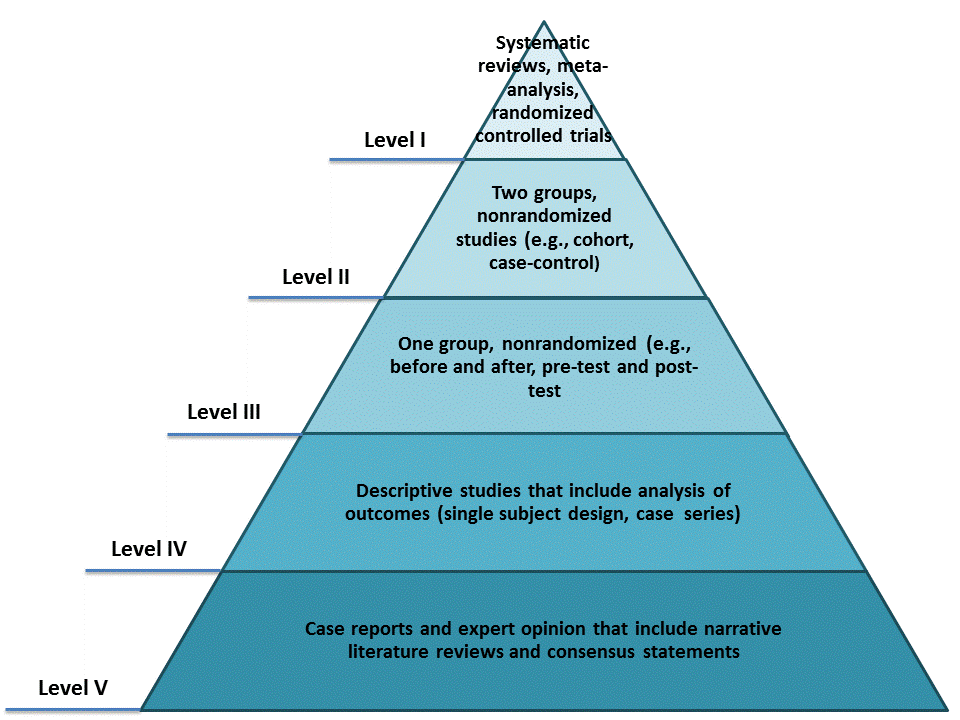Occupational Therapy
Databases
-
The Cochrane LibraryFocusing on high quality evidence to support health care providers in their clinical decision making, the Cochrane Library includes 6 databases which may be searched as a group or individually. The primary resource, the Cochrane Database of Systematic Reviews, includes more than 4,650 reviews and 2,015 protocols which have been prepared by a highly credentialed group to determine if an intervention for a specific disease or other problem is effective.
-
Joanna Briggs Institute Evidence-Based Practice DatabaseJoanna Briggs Institute EBP Database is published by the Joanna Briggs Institute (JBI). The Institute is widely regarded as one of the world’s leading providers of evidence–based information from across the globe, as well as the tools that help healthcare professionals implement an effective evidence–based practice program and provide the best possible patient care.
-
OTSeekerOTseeker is a database that contains abstracts of systematic reviews, randomised controlled trials and other resources relevant to occupational therapy interventions. Most trials have been critically appraised for their validity and interpretability.
-
TripTrip is a clinical search engine designed to allow users to quickly and easily find and use high-quality research evidence to support their practice and/or care. As well as research evidence we also allow clinicians to search across other content types including images, videos, patient information leaflets, educational courses and news
Pyramid of Evidence

Level I represents the most robust level of evidence. Many databases include filters that can help you limit your search results to different levels of evidence.
Levels of Evidence:
Levels of Evidence (adapted from Sackett, D.L., Rosenberg, W.M., Muir Gray, J.A., Haynes, R.B. & Richardson, W.S. (1996). Evidence-based medicine: What it is and what it isn’t. British Medical Journal, 312, 71-72).
Level I: Systematic reviews, meta-analyses, randomized controlled trials
Level II: Two groups, nonrandomized studies (e.g., cohort, case-control)
Level III: One group, nonrandomized (e.g., before and after, pretest and posttest)
Level IV: Descriptive studies that include analysis of outcomes (single subject design, case series)
Level V: Case reports and expert opinion that include narrative literature reviews and consensus statements
AOTA EBP Project, GUIDELINES TO CRITICALLY APPRAISED PAPER (CAP) WORKSHEET, EVIDENCE EXCHANGE
Also see : http://libguides.rutgers.edu/c.php?g=337282&p=2269540
Articles of Interest
Other Resources
-
AHRQ's National Guideline ClearinghouseAHRQ's National Guideline Clearinghouse is a public resource for summaries of evidence-based clinical practice guidelines
-
Evidence-based medicineThis journal systematically searches a wide range of international medical journals applying strict criteria for the validity of research. Content is critically appraised then the most clinically relevant articles are summarised into an expert commentary focusing on the papers clinical applicability. EBM also publishes articles relevant to the study and practice of evidence-based medicine; including Original Research and Reviews.
-
Evidence -Based Practice in Occupational Therapy: An IntroductionSally Bennett, Division of Occupational Therapy, School of Health and Rehabilitation Sciences, The University of Queensland, Australia
-
How to read a paper : the basics of evidence based medicineGreenhalgh, Trisha
-
Introduction to Evidence-Based Practice TutorialThe tutorial was developed by staff at Duke University Medical Center Library and the Health Sciences Library at the University of North Carolina at Chapel Hill
- Last Updated: Aug 23, 2024 2:57 PM
- URL: https://libguides.rutgers.edu/Occupational_Therapy
- Print Page